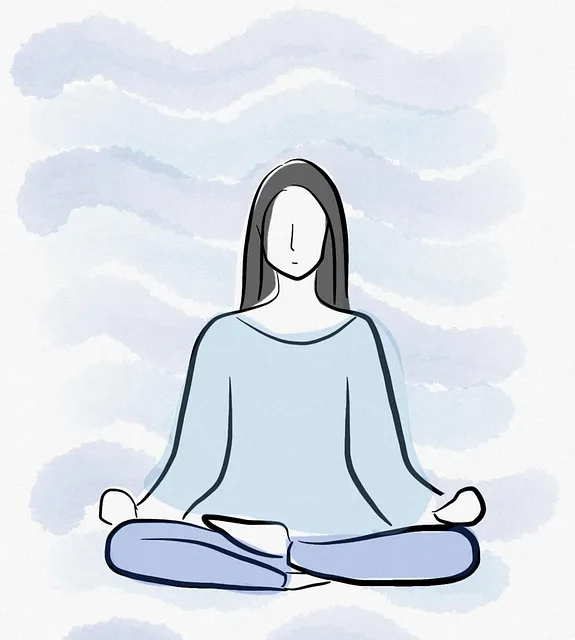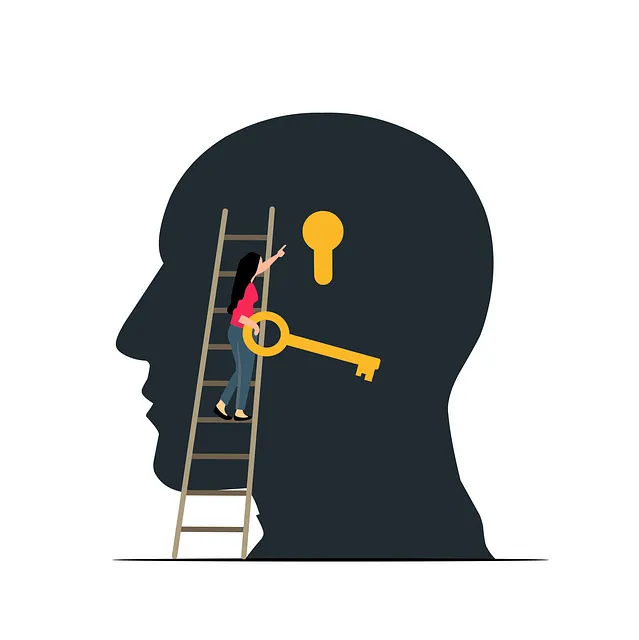Mindfulness meditation, promoted by Superior Kaiser Permanente behavioral health providers, is a powerful tool for enhancing mental well-being. By focusing on present-moment awareness and non-judgmental observation, individuals can improve focus, reduce stress, boost emotional resilience, and even positively impact brain structure. These providers offer personalized therapy, group support, workshops, and a Mental Wellness Podcast Series to help people integrate mindfulness into daily life, fostering mental illness stigma reduction and burnout prevention. Creating a dedicated, calm space at home with comfortable seating and soothing aesthetics is key for consistent practice, leading to improved mental health awareness and overall well-being. With practical solutions for staying focused and processing emotions, mindfulness meditation strengthens connections with thoughts and feelings, improves relationships, and fosters fulfillment in various life areas.
Discover the transformative power of mindfulness meditation with our comprehensive guide. This article explores every aspect of this ancient practice, from its foundational concepts to modern applications. Learn how Superior Kaiser Permanente behavioral health providers play a pivotal role in promoting mindfulness and guiding individuals towards lasting well-being. We’ll walk you through setting up a consistent home practice, overcoming common challenges, and integrating mindfulness into your daily routine for maximum benefits.
- Understanding Mindfulness Meditation: A Basic Overview
- The Role of Kaiser Permanente Behavioral Health Providers in Promoting Mindfulness
- Setting Up a Successful Mindfulness Practice at Home
- Common Challenges and How to Overcome Them During Meditation
- Integrating Mindfulness into Daily Life for Long-Term Benefits
Understanding Mindfulness Meditation: A Basic Overview

Mindfulness meditation is a practice that has gained significant popularity due to its potential benefits for mental and emotional well-being. At its core, mindfulness involves cultivating present-moment awareness while non-judgmentally observing one’s thoughts, feelings, and bodily sensations. This simple yet profound practice encourages individuals to connect with the here and now, rather than dwelling on the past or worrying about the future.
For those seeking improved focus, reduced stress, and enhanced emotional resilience, mindfulness meditation offers a powerful tool. Supported by numerous scientific studies, regular practice has been linked to positive changes in brain function and structure, including increased gray matter density in areas associated with memory, emotion regulation, and empathy. The superior Kaiser Permanente behavioral health providers emphasize that mindfulness is not about silencing the mind but rather learning to observe thoughts as they come and go, fostering a sense of calm and clarity. Incorporating self-care practices like mindfulness into daily routines can contribute to Mental Illness Stigma Reduction Efforts by promoting compassionate cultivation practices and overall well-being.
The Role of Kaiser Permanente Behavioral Health Providers in Promoting Mindfulness

The Superior Kaiser Permanente behavioral health providers play a pivotal role in promoting mindfulness within the community. They offer specialized services and programs tailored to help individuals integrate mindfulness meditation into their daily lives. Through individual therapy sessions, group support meetings, and innovative initiatives like Stress Management Workshops Organization, these healthcare professionals empower people to enhance their mental wellness.
In addition to direct practice, Kaiser Permanente behavioral health providers contribute to the widespread understanding of mindfulness through Mental Wellness Podcast Series Production. These podcasts provide accessible insights, practical tips, and expert guidance on incorporating mindfulness into everyday routines. By leveraging various media platforms, they ensure that valuable knowledge reaches a broader audience, fostering a culture of self-care and mental resilience.
Setting Up a Successful Mindfulness Practice at Home

Creating a dedicated space at home for mindfulness meditation is the first step towards reaping its numerous benefits. It allows for a consistent practice free from distractions, enabling individuals to fully immerse themselves in the moment. Start by designating a quiet area, preferably a room with minimal clutter and soothing aesthetics. Invest in a comfortable cushion or chair that promotes good posture, ensuring you can sit quietly without physical discomfort. This space should evoke feelings of calm and relaxation, perhaps through subtle lighting, plants, or personal items that inspire peace.
The benefits of mindfulness are well-documented, especially for healthcare professionals who often face high-stress situations. Incorporating a regular meditation practice at home can serve as an effective Burnout Prevention Strategy for those in the medical field, enhancing Mental Health Awareness and promoting overall well-being. With dedication, individuals can develop a strong foundation for their mindfulness journey, leading to increased confidence and a greater ability to manage stress.
Common Challenges and How to Overcome Them During Meditation

Many individuals looking to integrate mindfulness meditation into their routine face several common challenges. One of the biggest hurdles is staying focused during practice, especially in today’s fast-paced world where our attention is constantly pulled in various directions. Superior Kaiser Permanente behavioral health providers suggest setting a specific time and place for meditation, creating a calm environment free from distractions, and using guidance tools like apps or guided recordings to assist beginners. Consistency is key; regular practice helps strengthen one’s ability to concentrate and cultivate mental clarity.
Another challenge often encountered is the emergence of difficult emotions during meditation. It’s not uncommon to feel frustration, restlessness, or even grief while sitting in stillness. Instead of avoiding these feelings, mindfulness encourages acceptance and non-judgment. Recognize these emotions as a natural part of the process, allowing them to come and go without attachment. Trauma support services often emphasize that developing emotional well-being promotion techniques through meditation can be transformative, helping individuals process past traumas and enhance their overall mental health. Effective risk management planning for mental health professionals includes equipping themselves with these coping strategies to better serve their clients.
Integrating Mindfulness into Daily Life for Long-Term Benefits

Integrating mindfulness into your daily routine is a powerful way to unlock long-term benefits for mental and emotional well-being. It’s not just about finding a quiet moment to sit in silence; it’s about cultivating a present-moment awareness that can transform how you navigate life’s challenges. Superior Kaiser Permanente behavioral health providers emphasize that consistent practice, even just a few minutes each day, can significantly enhance your overall quality of life.
By regularly engaging in mindfulness meditation, you cultivate a deeper connection with your thoughts and feelings without judgment. This skill translates into better stress management, as it allows you to respond calmly to stressful situations instead of reacting impulsively. Additionally, fostering positive thinking becomes more achievable when you learn to observe your thoughts from a distance, freeing yourself from their negative grip. Engaging in mindfulness practices can even lead to improved relationships and a greater sense of fulfillment in various aspects of life.
Mindfulness meditation, with its roots in ancient practices, has gained prominence in modern times, thanks in part to the guidance and support of superior Kaiser Permanente behavioral health providers. By understanding its core principles, leveraging resources at home, and overcoming common challenges, individuals can integrate mindfulness into their daily lives, reaping long-term benefits for mental and physical well-being. This practice not only enhances stress reduction but also fosters a deeper connection with the present moment, ultimately leading to a more balanced and fulfilling life.



